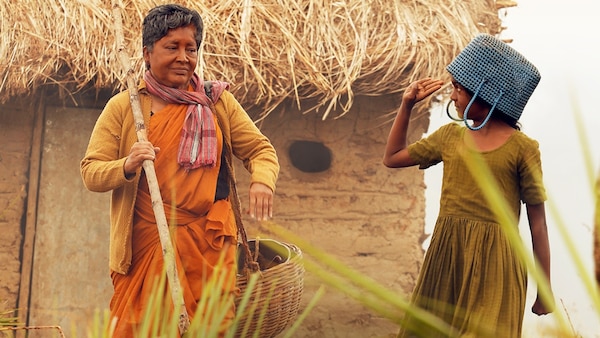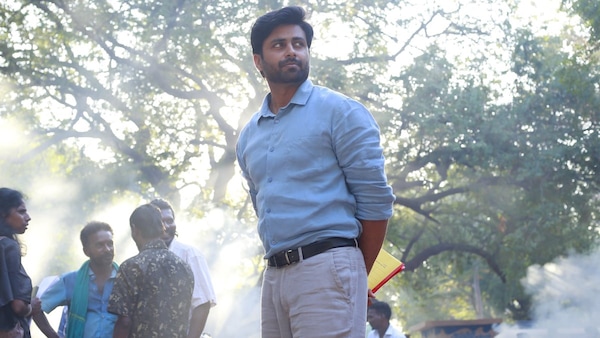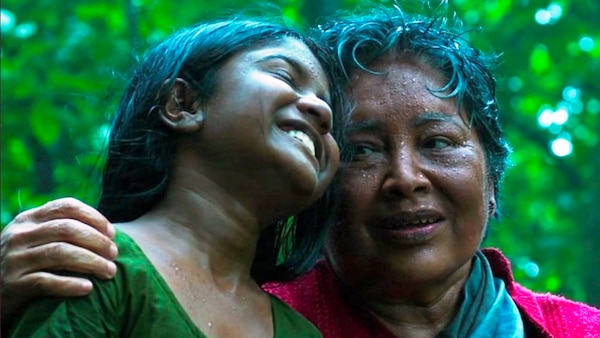Sembi movie review: Kovai Sarala, Ashwin Kumar stand out in this decently engaging drama with minor flaws
The sincerity with which the story is approached deserves mention, but the film falters a bit in the latter half which stops it from becoming a compelling fare

A still from the film
Last Updated: 09.47 PM, Dec 30, 2022
Story: A grandmother and her 10-year-old granddaughter, who belong to a hill tribe in Kodaikanal, go through numerous hardships after the latter gets raped by three youngsters, who hail from politically affluent families. Unfortunately, the cop who takes up the case, joins hands with the perpetrators. This makes the grandmother furious and she retaliates when the cop asks her to withdraw the case and starts attacking her. With no option left, she flees for life along with her granddaughter. With cops in the town on a hunt for the duo, will they be able to gain justice?
Review: Director Prabu Solomon has a penchant for heartwarming stories that revolve around naïve humans and their genuine emotions. Sembi is no different - this time he has come up with a story that revolves around a grandmother and her grandchild - who live in a hill area in Kodaikanal.
Ammuchi's (Kovai Sarala) life revolves around her 10-year-old grandchild. The tribal woman makes ends meet by beekeeping. The elderly woman gets the shock of her life when she learns that the child has been gangraped by three men. As if this isn't enough, a cop who offers to help her in nabbing the culprits, teams up with the criminals.

An enraged Ammuchi loses her cool when the cop asks her to withdraw the case. She beats him to a pulp, and runs away from her place along with the child. The duo boards a bus where they gain the support of a few passengers. They promise to help Ammuchi and the child from the cops.
The primary positive aspect of the film is the setting which Prabu Solomon has created. M Jeevan's splendid visuals aid the filmmaker in transporting the audience to the hilly area where the protagonist resides. The beautiful aerial view of the unexplored location in Kodaikanal offers viewers a surreal experience.
The chemistry between Kovai Sarala and the kid stands out, thanks to their performances. The former comes up with a power-packed performance and leaves the audience teary-eyed in a few scenes. We empathize with her situations, and Prabu has succeeded in writing as far as this aspect is concerned.
Nivas K Prasanna's background score elevates the emotions while songs, except the first one, are just passable. Ashwin Kumar puts up a notable performance as the young lawyer who sets out to help the protagonist.

The movie touches upon a sensitive topic, and handles various pertinent issues in an organic manner through conversations between passengers in a bus where most of the latter half unfolds. The overlong bus sequence has a few interesting moments, but some of the portions appear forced and the numerous characters introduced during the journey aren't designed effectively.
This hampers the overall flow of the narration. The climax, which was supposed to be a nail-biting episode, ends up offering a lukewarm experience. The episodes featuring a political conflict between two prominent parties which rely on the rape case for garnering mileage for the forthcoming elections fall flat. The production values, too, goes for a toss in the latter half, which is quite contrast to the making style in the first half.
Verdict: Watch it for the earnest performance of Kovai Sarala, arresting cinematography and sincere attempt at handling a sensitive topic.

 Premium
Premium